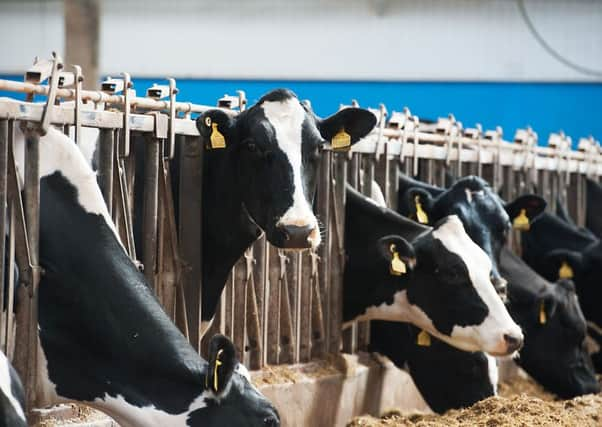When it comes to farming support, I'll vote Remain


The trouble is that for those of us trying to make our mind up there is too much information, much of it contradictory.
In spite of how badly wrong they got the Scottish independence referendum, for example, polls are still a mainstay for commentators.
Advertisement
Hide AdAdvertisement
Hide AdPolls claim that Leave and Remain are still level, with the “undecided” vote crucial. Bookmakers, however, offer odds-on that Britain stays in the EU. That is significant.
It is also significant that there is a human tendency to stick with what we know, no matter how much we might criticise it. Recent examples of that include the vote on Scottish independence.
Minor examples include the Australian vote to retain links with the British monarchy, in spite of a vociferous anti campaign, and New Zealand’s decision to retain its national flag rather than a new design.
In the small world of farming, the National Farmers Union of England and Wales recently stuck with their male president rather than vote for a first woman.
I don’t claim a vote for Remain is inevitable. I do suggest past experience is a pointer.
Meanwhile, as I did with the Scottish referendum and with the general election last year – and indeed in every election of any kind since I’ve been eligible to vote, from local councillor to MEP – I try hard to understand the arguments then, on the day, make the effort to get to a polling station and vote.
Few things irritate me more than someone saying: “What’s the point?” Try living in a country where that is true, such as Russia, China or Zimbabwe, or any of a frightening number of countries in the world where there is no vote, or only one way you can vote, then reflect how stupid a comment that is.
Through all the mud-slinging and fatuous and exaggerated claims from both sides during their bus tours, television and radio debates and via newspapers, the argument for the public has effectively come down to the economy versus immigration.
Advertisement
Hide AdAdvertisement
Hide AdThe Remain campaign insists that the national economy would suffer outside the EU. The Leave campaign insist that unfettered immigration if we stay in the EU will ruin Britain.
For the small world of farming, the debate is about subsidies present and future. And immigration.
Subsidies first. British farmers get more than £3 billion of EU payments a year. That’s a large chunk back of the £10bn Britain contributes to the EU. Some types of farming, notably hill, sheep and beef, depend on these payments to stay in business. Outside the EU, the chances of a British government continuing to support farming to that extent are nil.
And immigration? It is historical fact in every developed country that immigrants arrive to do the hard and dirty work that locals won’t do. They come because they get paid more to do it than they can earn at home. They come from cultures where they grow up working hard and contributing to the family.
In spite of claims about benefit scroungers and criminals, most immigrants have a work ethic that too many British workers don’t have. In farming that applies to jobs in vegetable growing and processing, intensive pig and poultry farms and soft fruit. Any job in fact that involves hard work. They are not taking jobs from locals, they are doing jobs that locals won’t do.
Apart from immediate or near-future considerations, there is the long term future of the EU and the world. All indications are that voters under 35 favour Remain.
Trying to decide, I’m reminded of a 16-year-old William Hague at a Conservative Party conference. He said their view of the future was not as important as his because “in 40 years time most of you won’t be here”.
In spite of my naturally optimistic outlook, the odds on my being here in 40 years are slim. But my children and grand-children will be. I think I’ll vote Remain for them.
